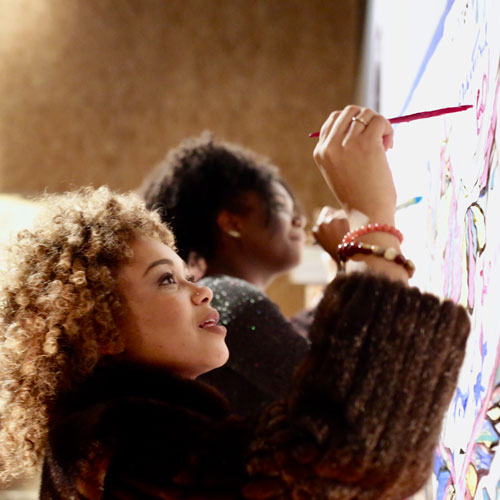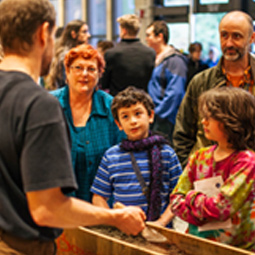Seattle, Wash. – Researchers from the University of Washington and Burke Museum of Natural History and Culture will be partners in the newly announced $30M NSF Center for Braiding Indigenous Knowledges and Science.
Based at the University of Massachusetts Amherst, the center will focus on connecting Indigenous knowledge with Western science to address evolving challenges brought on by climate change; the danger posed to irreplaceable archaeological sites, sacred places, and cultural heritage; and the challenges of changing food systems, all of which disproportionately affect Indigenous communities.
The center’s team of more than 50 scientists — including more than 30 of the world’s leading Indigenous natural, environmental, and social scientists representing Native American, First Nations, Métis, Native Hawaiian, Alaska Native, Māori and Aboriginal Australian peoples — will work cross-culturally to undertake place-based studies and projects in eight international “hubs” in the United States, Canada, Aotearoa New Zealand, and Australia. The Pacific Northwest regional hub will sponsor Indigenous science projects.
“The center provides a foundation for demonstrating, through active, place-based and community-based research projects, how to ethically engage with Indigenous knowledge or develop partnerships-based research with Indigenous nations,” said Dr. Sara Gonzalez, associate professor of Anthropology, curator of archaeology at the Burke Museum, and director of the Quaternary Research Center. Gonzalez will serve as a co-lead of the center’s Policy & Government Agencies Working Group.
In addition to research, the center has an important educational mission to train postdoctoral researchers and graduate research assistants. As part of the project, the University of Washington will offer two graduate fellowships, and UW Indigenous students will have access to a number of study abroad, training, and scholarship opportunities designed to support their training and research in braiding Indigenous knowledge and science.
“With this formal partnership with the center, our students will have access to an even greater network of Indigenous scientists, with expanded research and scholarship opportunities designed to support and train the next generation of Indigenous scholars,” said Dr. Sven Haakanson (Sugpiaq, Old Harbor, Alaska), professor and chair of Anthropology and curator of North American Anthropology at the Burke Museum. Haakanson will serve as co-lead of the Storywork and Knowledge Mobilization Working Group.
More information about the Center for Braiding Indigenous Knowledges and Science, including partner institutions, researchers, and Indigenous communities, can be found at https://www.umass.edu/gateway/research/indigenous-knowledges.
Contact:
Joanne Matsusaka
Director of Communications
Burke Museum of Natural History and Culture
matsujm@uw.edu
About the Burke Museum
The Burke Museum of Natural History and Culture, located on the University of Washington campus, is an active research museum that hosts a collection of 18 million artifacts and specimens ranging from canoes and gemstones to dinosaur fossils and the world’s largest collection of bird wings. With research and lab work that happens in plain view of visitors and three floors of one-of-a-kind objects, the Burke is an ever-changing place of curiosity and wonder. For more information, visit burkemuseum.org.
About the NSF Science and Technology Center Integrative Partnerships program
The NSF Science and Technology Centers Integrative Partnerships program has supported research in areas of national importance since 1987. Science and Technology Centers (STCs) focus on establishing new scientific disciplines and developing transformative technologies that have the potential for broad impacts on science and society. The centers will shine light on emerging STEM fields to develop a globally competitive STEM infrastructure and conduct outreach to inform the public of breakthrough science. CBIKS, the first STC to be based at UMass Amherst, is one of five new STCs announced by the NSF.
###


